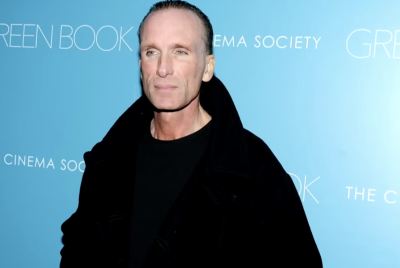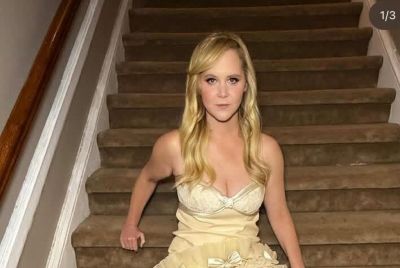Geek Speak: Why Big Bang Theory is Universally Awesome [BLOG]
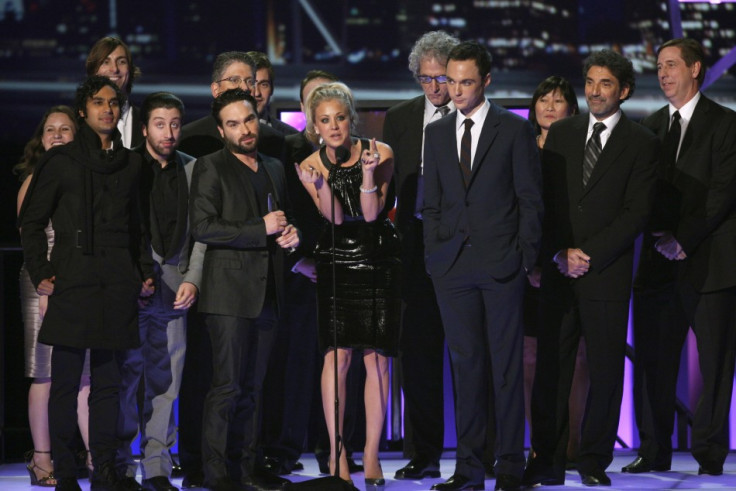
As prolific The Big Bang Theory TV producer Chuck Lorre is tipped to sign another mega deal with Warner Bros, while the show itself is racking record ratings - even for its re-runs- I thought it only appropriate to wax lyrical about why the show is so lovable.
Now, haters are going to hate. Generally when people bandy about phrases like "I liked them when they were underground", "I liked it before it was popular" and "real [insert profession here] wouldn't like it" usually means they haven't bothered even watching or listening to whatever they are talking about.
I find myself and fellow The Big Bang Theory fans defending the show on a regular basis because, apparently, it's not cool to like a show that put geeks in the centrefold.
After conducting research on my Facebook page as to why they hate the programme so much, I thought it would be my sworn and self-imposed duty to defend it.
So I decided to compile a list of some of the reasons why the show is in fact celebrating, not denigrating nerds.
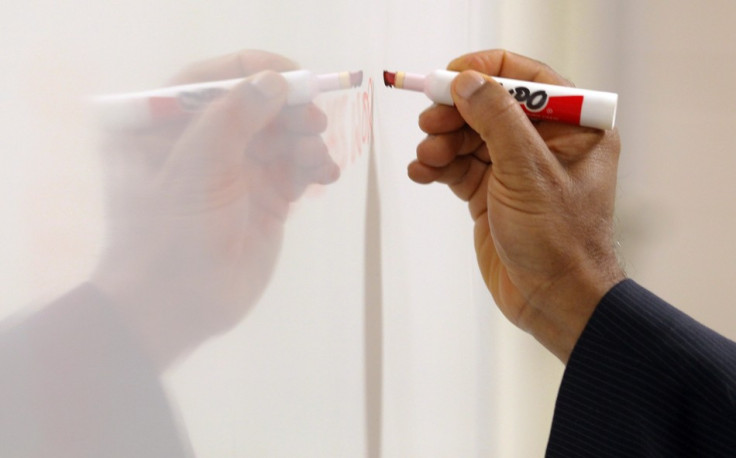
Real Scientists - The Devil is in the Detail
In the same vein of using doctors to check on scripts, synopses and references in TV shows such as ER and House, The Big Bang Theory made it their mission to have actual scientists weigh in on scripts and even the jokes.
And it does matter, because there's nothing that annoys scientists more than inaccuracy.
David Saltzberg is the god of the Big Bang Theory's fact-checking team. After scoring the gig from a fellow astrophysicist friend, who couldn't keep up with the job because he was based in Hawaii, Saltzberg became the show's science consultant.
His background is enviable. He has a Ph. D. in physics from the University of Chicago and did a post-doctorate at CERN. Before that he gained a Bachelor's in physics at Princeton University and now teaches at UCLA. Oh and according to interviews with Wired, he likes to fly scientific balloons above Antarctica and go back to Switzerland to work on the Large Hadron Collider.
He consults on every script, looks at every joke to make sure it is accurate and of course writes the dialogue when the original script writers put [science to come] into the manuscript.
But he's not the only one; Mayim Bialik - also formerly known as Blossom for those who were old enough to remember her- has a Ph.D. in neuroscience and helps with the biology references. She also plays the character Amy Farrah Fowler.
In every episode there is a whiteboard, either in the background or in front of the characters, and on it the equations are real. Sometimes you can even see the "progress," and now fans have dedicated websites to discuss what equations and formulas are on the boards.
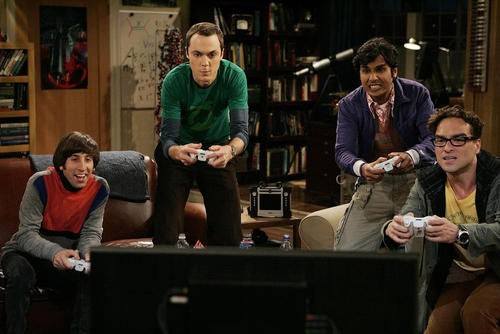
Celebration not Denigration of Geeks: Astute Perceptions
One of the greatest bug bears, which I still don't quite understand, from some critics is that the characters are - well - too nerdy. Sometimes in a fit of rage, critics say that they are too generalised or too in tune with stereotypes - which is what most comedy actually builds itself on.
Yes, we get the nerds being painted as socially awkward individuals, bordering on Asperger's Syndrome in some cases. In the case of one character Raj, who cannot speak to women unless he is drunk, critics say it's implausible.
Implausible? I think not.
When I look back to when I used to work in a comic book shop, there were many like this. Even getting them to respond to a question at the till was sometimes a Herculean effort and when one regular customer piped up to tell me that "if I was the commander of a Star Trek utopian universe - you would be my queen", it didn't diminish the stereotype further.
Furthermore, what I really like about the characterisations is that they play a lot of games or do various activities that have been prolific in my childhood and erm, adulthood. The scenes where they trundle to the comic shop, coo over the latest piece of comic or gaming memorabilia and even their designated Halo nights are all reminiscent and factually correct when engaging in said activities.
OK, not all nerds are like that, but then what counts as a nerd? I know people who would label themselves as a geek yet love to hate Game of Thrones, Lord of the Rings or anything fantasy based. So geekdom is relative.
The cosplay and role playing group (RPG) episodes are remarkably, hilariously similar to real life events, and although juvenile to some people, the characters' laughter over gaming terminology and anger when someone hacks into your World of Warcraft account is just as accurate.
I have friends who, whether they want to believe it or not, fit into the mould of the characters with alarming detail - but why is this a bad thing?
I find it celebrates all that makes them who they are.
Yes, the Big Bang Theory is a hyperbolic take on real life events, activities and people, but then again this isn't a documentary or a serious drama - it is a comedy that places a different group of people into the centrefold, and provides access to their world.
It's hard to find a successful comedy which isn't underpinned by stereotypes. Glee is built on a merry band of highschool misfits who break out into song more often than they go to the toilet; Friends has its collection of middle-class New Yorkers; and How I Met Your Mother has its band everyman college graduates. Oh and don't forget about Frasier, which stereotypes wealthy middle-class pompous intellectuals with a razor-sharp script and farcical storylines.
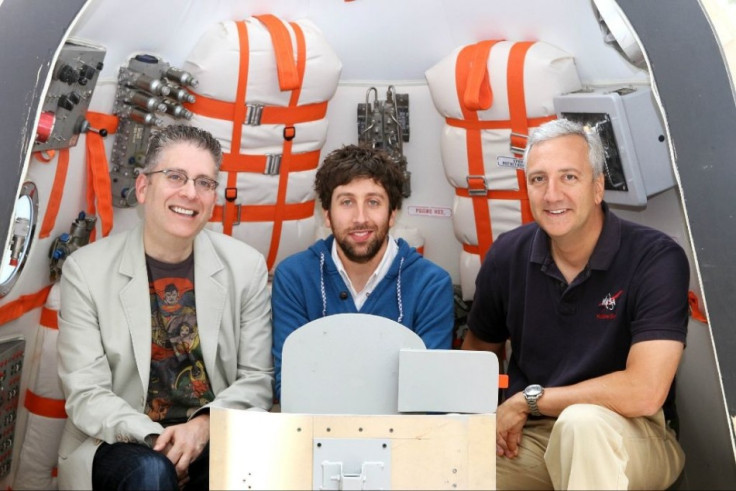
Epic Cameos
While other sitcoms receive accolades from paying vast amounts of money to get some "celebrity" on the show who was famous for a sex-tape or because they fall out of nightclubs a lot, The Big Bang Theory celebrates its core audience fandom with cameos from some of the greatest minds in the universe, as well as pop culture icons.
We get rewarded, as well as celebrating people who should be counted as A-list celebrities, such as famous astronauts, astrophysicists and computing legends.
NASA astronaut Dr. Michael J. Massimino, veteran of two Space Shuttle missions which serviced the Hubble Space Telescope, featured heavily in one episode.
Nobel Prize-winning astrophysicist Dr. George Fitzgerald Smoot III, as well as Dr. Neil deGrasse Tyson, who who was at the centre of the controversy over Pluto's status as a planet, have also made appearances.
To name more intellectual heavyweights, we have the Dr. Stephen William Hawking, who needs no introduction and of course Dr. Brian Greene who was lampooned by the character Sheldon Cooper for his popularising of physics with his books The Fabric of the Cosmos and The Elegant Universe.
And of course on the popular culture side, we got more than a glimpse from several Star Trek characters, Wil Wheaton, LeVar Burton, Brent Spiner and George Takei, as well as Stan Lee and Summer Glau.
Steve Wozniak, one of the founders of Apple Computers alongside with Steve Jobs also makes a cameo.
Oh and Charlie Sheen - but let's just forget about that one.
Geek Speak: Best Nerd Proposals of All Time [BLOG]
Geek Speak: London Star Trek Extravaganza Set to Stun [BLOG]
Lianna Brinded is senior business writer with IBTimes UK
© Copyright IBTimes 2025. All rights reserved.











